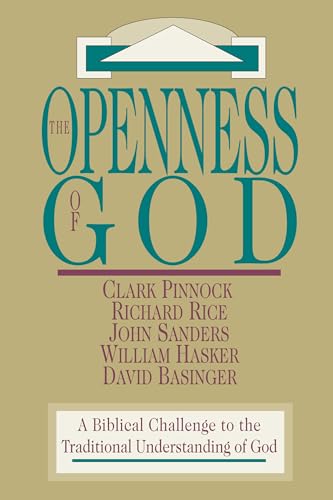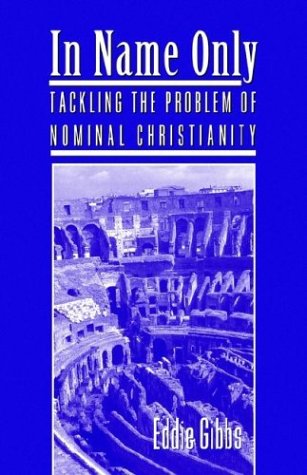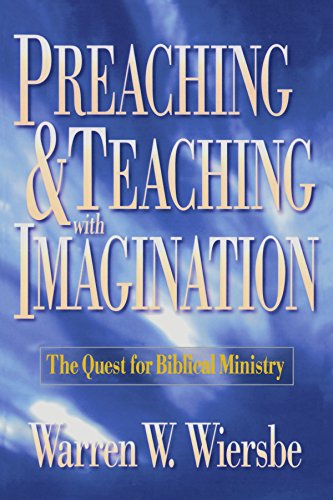Volume 21 - Issue 3
Gospel, Language, Nationhood
By Stephen N. WilliamsHow often do we hear of something: ‘This is a particularly contentious issue amongst Christians today’? So often, that we are tempted to say that it is true of almost every issue we mention or, alternatively, to say it of nothing at all, and just take it for granted. Of ‘Gospel, Language and Nationhood’ we shall simply say this: travel the world over and you will find Christians divided over the question and the divisions are, practically, profoundly effective.
This issue of Themelios is devoted to this general theme. It is extremely important to understand the background to the contributions. The ideal would have been to secure articles from a variety of backgrounds, across the continents and cultures of our world. One moment of reflection is enough to reveal why such an ideal is impractical. To try to get anything like a representative selection of articles would be fatal. For just how many positions need to be brought to our attention? So let it be clear that what follows is not representative; nor is it even balanced.
We have, rather, taken advantage of a consultation held in Wales under the auspices of the Evangelical Alliance in the summer of 1994. Issues of nationhood and language divide folk deeply in Wales. The consultation aimed to address these issues, but only in the conviction that they must be addressed in a theological framework that has nothing whatsoever to do with Wales in particular. For that reason there was a representation from outside Wales, including amongst the key speakers, a presence every bit as important as the Welsh presence. The articles that appear here have their origin in that consultation.
The detailed concerns and progress of that consultation are irrelevant for our purposes. But we have retained some of the reference to Wales in particular, especially in the article by Professor R.M. Jones. This is not because Welsh is probably one of the oldest living languages in Europe and certainly constitutes one of the oldest living literatures in Europe! It is because a discussion that was not earthed in example would be the poorer.1 The main lines of the arguments are generally theological and these have been sharpened by omitting reference, on several occasions, to a particular nation. After some hesitation, statements expressing particular, critical, judgment against the policies and attitudes of a particular nation have been retained in the present text. While such a phenomenon does not appear very much, it is right to mention it here. It must be made crystal clear that such particular judgments are neither in accordance nor in conflict with the views of the editor: Themelios is entirely non-committal here, consistently with our generally stated policy that contributors express their own views. However, if we had omitted what may be deemed to be controversial and partial political judgments, the fabric of the relevant discussions would have been spoiled.
Our first contribution comes from William Storrar, Lecturer in Practical Theology at King’s College, University of Aberdeen. A brief comment follows from Martyn Eden, who is Public Affairs Director of the UK Evangelical Alliance in London. This is followed by a contribution from Professor R.M. Jones, Emeritus Professor of Welsh at the University College of Wales, Aberystwyth. The response to this at the consultation was a substantial one, by Phil Hill, Chairman of Evangelical Alliance (Wales) and now pastor of Hockcliffe Road Baptist Church in Leighton Buzzard in England. However, Professor Jones modified his paper in order to take account of some of Phil Hill’s original criticisms, so that we now publish only a ‘comment’ by the latter on Professor Jones’s revised version, which appears here.
We also include a separate contribution, unrelated to the consultation on whose proceedings we are drawing, but on the same broad theme. Neil Summerton is a civil servant in the UK Ministry of the Environment and author of A Noble Task: Eldership and Ministry in the Local Church (Carlisle: Paternoster, 1994). This is an adapted version of a paper given at the international conference of the Council on Christian Approaches to Defence and Disarmament held in Friedewald, Germany, in September 1993.
There are (a) theological issues on which, I believe, we must be uncompromisingly firm. There are (b) others on which we must tolerate disagreement and suspect premature claims to certainty. There are also (c) political judgments, which may differ sharply even when we actually agree on an issue in category (a) and (b) as well. Of course, people will differ on what falls under (a) and under (b): a meeting of minds is particularly difficult when we find that the other consistently believes that what we take to be non-negotiable is an open question and what we take to be an open question is non-negotiable. It is also the case that people allow their agreement on political judgments (c) to be the basis of their unity in human relationships, friendships and solidarity. Political agreement sometimes draws atheist and Christian closer together than Christian and Christian who agree on (a) but disagree on (c). It is here that one ought to say: unity in the gospel should transcend political differences. Too often, this sounds like a claim that Christianity does not have much to do with politics. But, of course, one is saying no such thing. And in pleading for the importance of not allowing what may be termed ‘political’ judgments to divide our witness and for allowing some leeway for theological differences on certain issues (b), one is not restricting the scope of rigorous theological thinking. On the contrary: if we make such a plea it is in order that we might, in the grace of God, arrive as far as possible at agreement under (b) and even under (c).
Whether we think of language or nation, race or gender, we are probing the nature of our identity, what it means to be a new creation in Christ, in whom there is neither Jew nor Greek, slave nor free, male nor female. Reconciliation, in relation to God and to each other, is central in Christianity. Any theology which disables such a reconciliation is false. That is not to dictate a line of thought on any of the matters discussed in this issue. We are talking of reconciliation on divine, not on human terms, reconciliation in the truth, not apart from it, where affirming diversity and distinction may be an expression of and not a flight from reconciliation. Our talk of reconciliation does, however, remind us of both the criterion and the ethos of our theological thinking about gospel, language and nationhood. Perhaps there are no easy answers. But we must believe that as we mine the firm and abiding Word of God for the riches of its disclosure about the ways of God, humanity and world, we shall more rejoice at the divine provision for us, than lament our present theological perplexities.
1 Such is the grip of cynicism upon our culture, that some reader somewhere may suspect a connection between the selection of Wales as a partial case-study and the nationality of the editor. This extreme of cynicism summons form an extreme riposte. A prominent English evangelical leader has pointed out the Authorized Version rendering of Genesis 1:21 (sadly lost in other, ideologically dominated translations): ‘And God created great w(h)ales.…’
Stephen N. Williams
Stephen Williams is professor of systematic theology at Union Theological College in Belfast, Northern Ireland, and served as general editor of Themelios from 1995 to 1999.






